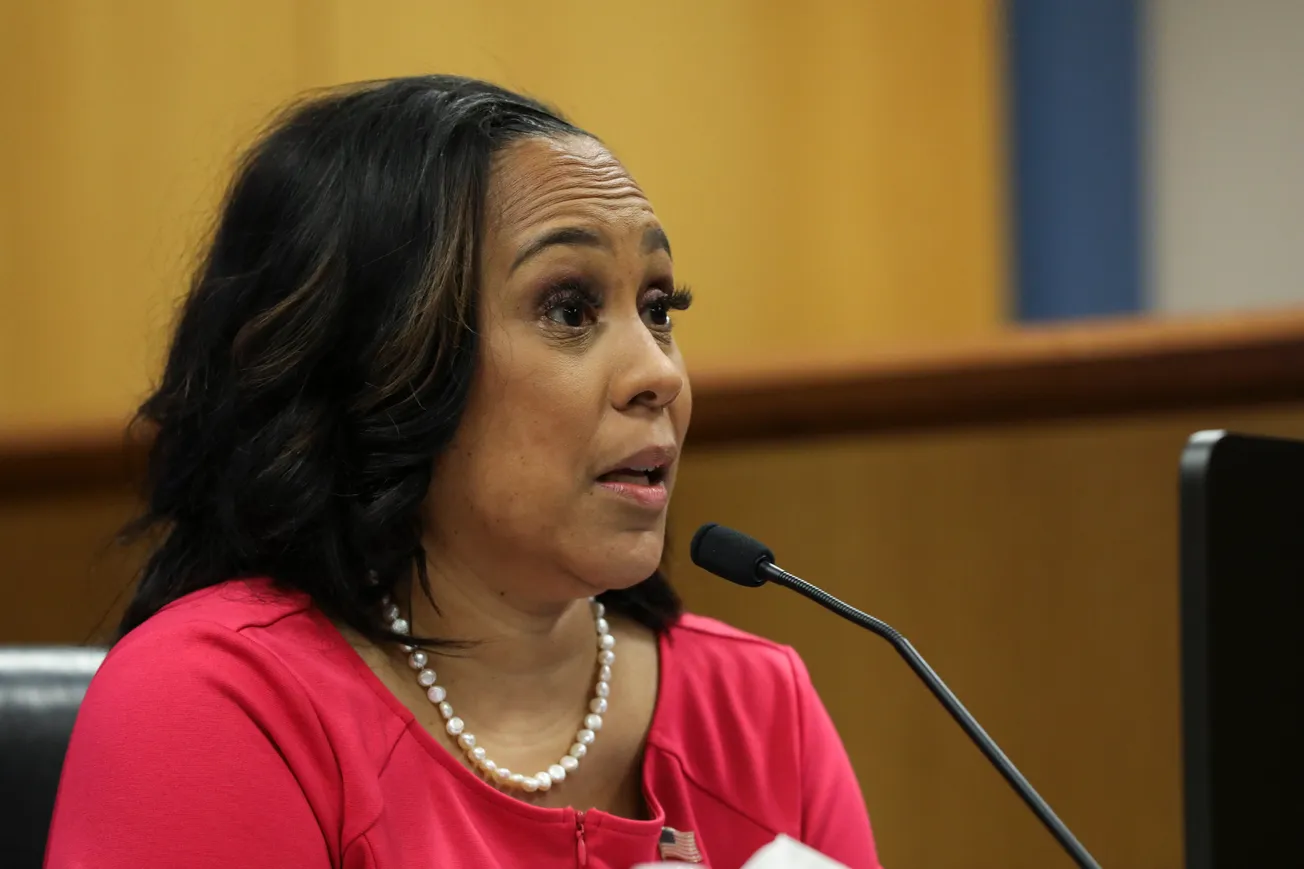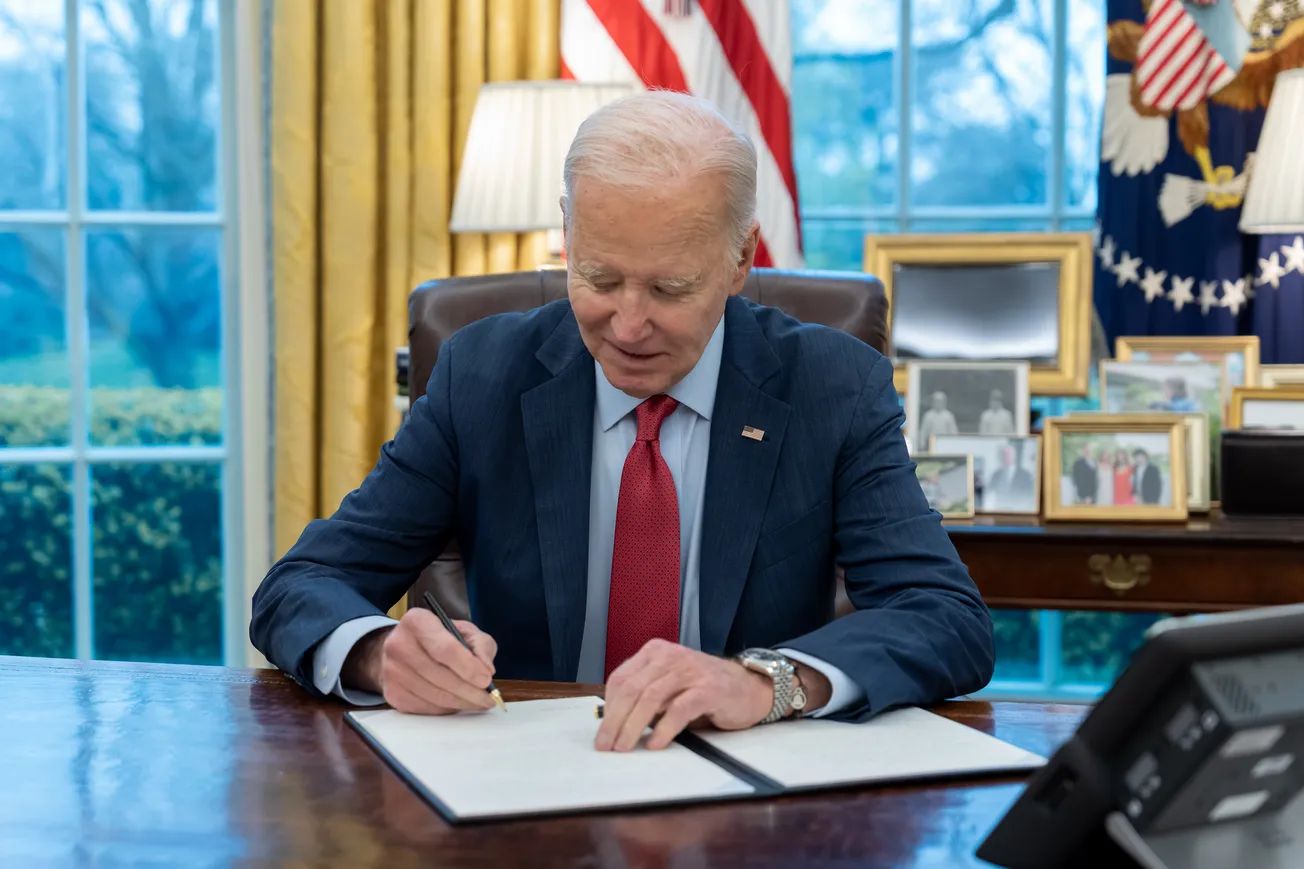President George W. Bush famously said about improving educational opportunities that the soft bigotry of low expectations has held minorities back. We saw his theory play out last week in a Georgia courtroom, when Americans watched a complex case unfold live on their devices rather than watching scripted scenes in a movie production.
In a remarkable twist, the district attorney of Fulton County, Georgia, Fani Willis, who had brought racketeering charges against former President Trump and 19 codefendants for allegedly attempting to overturn the 2020 presidential elections and became a media darling, was herself put on the stand to defend her prosecutorial conduct.
Never mind that Georgia’s RICO laws were designed to bring to justice people who were involved in mob-like crimes, such as extortion, drugs, prostitution, and even murder. From the Left's and the TDS crowds' perspective, Trump and his supporters met this definition of criminals well. In a classic David versus Goliath case, a county official, bringing truth to power as her mantra, became the talk of the liberal media circuit. A highly lucrative career in talk radio or television after the case concluded, regardless of the case's outcome, like Jen Psaki or George Stephanopoulos, was on the cards. Or a run for Georgia governor. The possibilities were endless.
First up on the stand, however, was Willis's Special Prosecutor, Nathan Wade, with whom she is alleged to have had a romantic relationship during the conduct of the case, bringing in conflicts of interest. Willis and Wade, both Black, had numerous inconsistencies in their stories. The romance occurred well within the statute of limitations - in the last three years - yet they couldn't agree on details, including when it ended and what constituted an overnight stay.
Wade, whom Willis paid handsomely for his work at over $250/hr when she hired him, racked up over $650,000 in fees billed to Fulton County taxpayers. It was a strange appointment given that Wade had never prosecuted a single case in his career, having served mainly as a defense attorney in low-level civil cases like divorce or drunken driving.
So why did Willis hire him to lead a complex and innovative racketeering case against a former U.S. president, a case whose outcome could have international repercussions? Did she hire him because he was her boyfriend? What message does this instance of nepotism give to young minority youth watching the case?
After weeks of silence, Willis and Wade admitted going on numerous exotic vacations, all paid for by Wade using his corporate business card. Was it ethical for Willis to accept such expensive gifts from her lover and employee? Wasn't it wrong of Wade to use company cards for private travel? Did he expense those trips on his tax returns? When asked, Willis said that she reimbursed Wade in cash because she sometimes maintained cash at home up to $15,000. How many American families do this? When pressed for proof that she paid her boyfriend back in cash, she said she didn't need any because Wade had already said the same thing: "The testimony of one witness is enough to prove a fact." She conceded that she had no written proof.
If the Willis standard about witnesses holds, what about the testimony of Robin Yeartie, who met Willis in college and testified that the district attorney began a romantic relationship with Wade in 2019 - three years before the prosecutors said they started dating? Would Yeartie's testimony be sufficient to prove a fact? Or does the Willis rule apply only to witness testimonies friendly to her? The day was a head-scratching turn of statements that proved in the court of public opinion that Willis and Wade were ethically compromised and had surrendered their moral leadership to bring about a complex RICO case against the former leader of the free world.
When Stacey Abrams, another Black leader, lost her campaign for Georgia governor in 2018 and never conceded, she became the hottest politician in America. Yet, when Trump didn't concede his election loss in 2020, he became the country's most reviled politician in recent history.
How does one expect Black youth to digest this inconsistency? When Black leaders fail to measure up, should citizens address performance or justify it through a DEI lens? If this isn't soft bigotry, we don't know what is.
The Left's defense is that if you are a minority individual, you face so many odds that even a defeat should be considered a victory. Stacey Abrams needs to be encouraged to speak up because she shone a spotlight on electoral practices in the Deep South. White House Press Secretary Karine Jean Piere lies so often that we headlined an entire editorial about her falsehoods. Every criticism of hers triggers an automatic liberal counterpoint- as a Black gay woman, KJP faces attacks that a white male never would.
What about other DEI politicians who routinely abuse the shield of protection they get for belonging to a minority community? Missouri Congresswoman Cory Bush, a member of the famous Squad, hired her boyfriend on her security detail, thus funneling campaign funds to her lover. She is currently under a Department of Justice investigation.
In 2020, when Speaker Nancy Pelosi ran the House with an iron fist, the House Ethics Committee found Rep. Rashida Tlaib (D-Mich.), another Squad member, violated campaign finance rules by receiving a campaign salary when she was no longer a congressional candidate. But the Committee, using a DEI filter, miraculously concluded that Tlaib did not have "ill intent" in her actions.
Ilhan Omar, another Squad member, has had such a complicated history surrounding her numerous marriages, immigration, traffic violations, campaign finance, and perjury that even the Associated Press conceded that few conclusions could be drawn. How did Omar respond to these charges? By using the classic DEI excuse:
We recognize how these folks are deeply invested in stopping a progressive, Black, Muslim, hijab-wearing, immigrant woman.
America's minority youth deserve better minority leaders to look up to, those who do not abuse the power of their office and hide behind a DEI excuse when caught.
Rajkamal Rao is a columnist and a member of the tippinsights editorial board. He is an American entrepreneur and wrote the WorldView column for the Hindu BusinessLine, India's second-largest financial newspaper, on the economy, politics, immigration, foreign affairs, and sports.
Related: Americans Reject DEI-Dominated 'Wokeplace,' Schools: I&I/TIPP Poll
Harvard Again Becomes The Focus Of Balancing Diversity With Meritocracy






